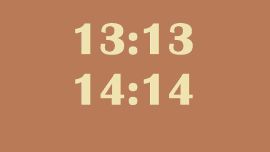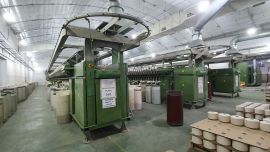The country ground to a halt Monday as public service unions blocked road, rail and air transport with a nationwide 24-hour strike in protest against the government.
In a massive show of force against the government of President Mauricio Macri, organisers said at least one million workers were taking part in the industrial action which halted trains, subways, buses and flights.
"The strike had a very high level of compliance throughout the country," Juan Carlos Schmid, leader of the General Confederation of Workers (CGT) umbrella union grouping, told a press conference.
Banks and schools remained shut and the nation's capital, Buenos Aires, slowly emptied of traffic as the day progressed.
"These stoppages don't help at all, they don't add anything, and I don't think that there has been a government in decades that cared as much about employment and the workers and creating new opportunities," said Macri, who served as mayor of Buenos Aires City from 2007 to 2015.
Although the CGT called only for a strike, more radical groups organised demonstrations that cut off access to Buenos Aires.
From 7am local time, activists began to close off the main routes into the capital where hundreds of federal law enforcement personnel were deployed.
"The strike is against the economic programme ... the IMF has always brought hardship to the Argentines," Schmid told reporters, calling the strike "the biggest in eight years."
Unions are demanding that salary negotiations for this year be reopened in order to align them with projected inflation, calculated at 27 percent by the central bank and which could rise to 30 percent by year's end. Negotiations mostly took place at the start of the year, when the annual inflation target was 15 percent – a goal which had been abandoned by May.
In the interest of maintaining dialogue with the unions, Labour Minister Jorge Triaca said his office was in favour of such negotiations.
Following a currency crisis in April and May, in which the peso shed roughly 30 percent of its value, President Macri turned to the IMF for support in order to bolster market confidence. Last week, the IMF's executive board confirmed a previously agreed US$50-billion standby loan for Argentina
Argentina has a bitter history with the global crisis lender, which many citizens view as having imposed tough conditions that worsened economic pain 17 years ago.
Quieter
As the strike gripped Buenos Aires Monday, only a few cars could be seen on the city streets, which were quieter than on a Sunday.
"A general strike isn't enough. We need a battle plan to counter this war plan against the workers," Marcelo Ramal, a leader of the Workers' Party, said at one of the roadblocks.
The Finance Ministry estimated the strike would cost the economy US$1 billion.
"The government is in a tough spot, it is at its very lowest point [in polls] and has been strongly criticised by workers" whose wages are losing value against the high rate of inflation, said political analyst Diego Reynoso.
Macri, a free-market businessman who once ran Boca Juniors, one of the country's top football clubs, scrapped many subsidies his predecessors in government, Néstor Kirchner and Cristina Fernández de Kirrchner, had granted on a variety of services, most notably electricity, gas and water.
However the rise in the cost of utilities, as well as in public transport, has further eroded the spending power of Argentines.
The government's deal with the IMF aims to balance the budget by 2020.
- AFP























Comments